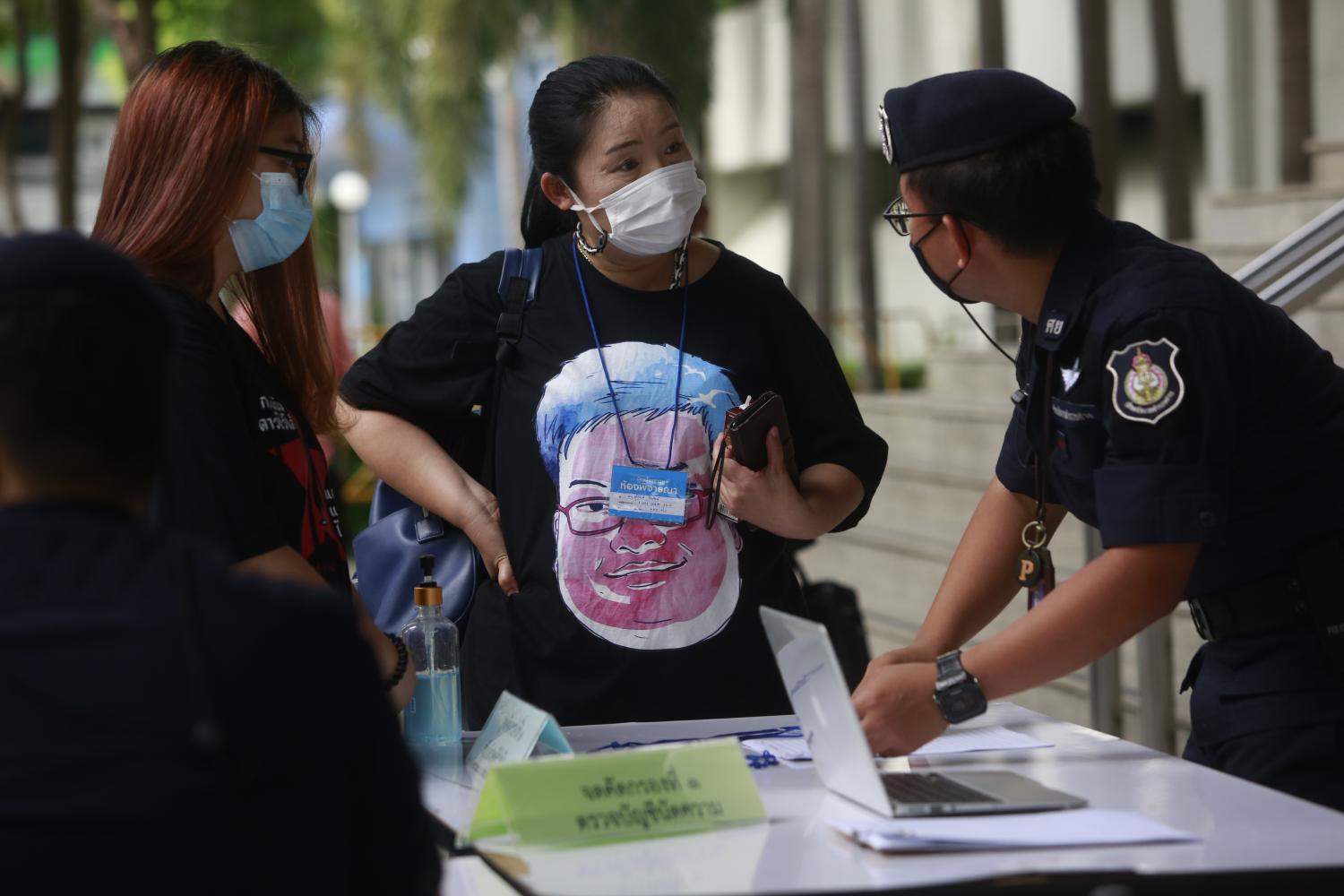
Ratsadon protest co-leader Parit "Penguin" Chiwarak refused to take part in a Criminal Court session on Monday that was examining evidence in the lese majeste case against him.
Mr Parit, who has been on a hunger strike for 30 days, arrived in court in a wheelchair and attached to drips.
He is accused of breaking the lese majeste law while addressing the so-called MobFest rallies at the Kok Wua intersection and nearby Democracy Monument from Nov 14-15 last year.
He was again remanded in custody after his bail application was rejected.
The court allowed him to talk briefly with his mother, sister and two friends from Thammasat University.
Mr Parit refused to accept the 32 witnesses presented by the prosecution and also insisted that his detention was unfair since he had not yet been convicted.
He said his detention had prevented him from mounting a full legal defence and that rendered the judicial process unjust.
Mr Parit told the court he would continue to refuse to acknowledge the entire legal case against him until he was released on bail.
He also sacked his entire team of lawyers -- Krissadang Nuttajaras, Khunthika Nuttajaras and Noraset Nanongthum. Mr Krissadang said after the session that Mr Parit had decided not to be part of the justice process and so the lawyers were of no use.
The first examination of prosecution witnesses is on June 25 and defence witnesses on Aug 13.
Mr Krissadang said if convicted, Mr Parit was likely to be jailed for at least 50 years, given the gravity of the offence.
"He might believe that even if he is judged guilty, he might win justice [out of court] but ... the court will be able to hand down a ruling anyway," the lawyer said.